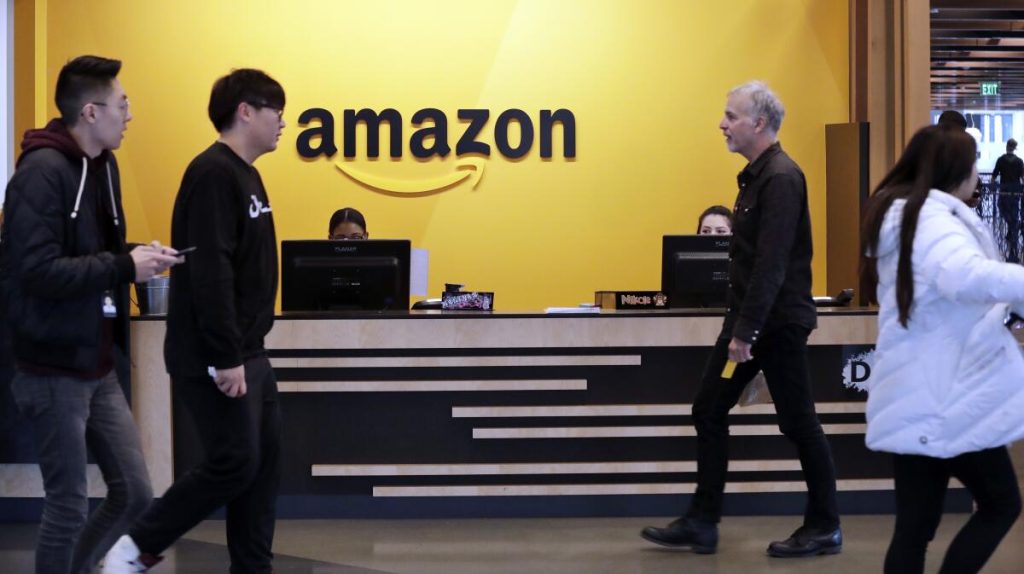
The debate over where desk-based employees should work is intensifying, particularly as Amazon mandates a return to the office five days a week while the UK government champions the right to flexible working, including remote options. Amazon argues that being in the office enhances “innovation, collaboration, and connection,” while the government associates flexibility with improved performance and a more dedicated workforce.
Four years post-pandemic, what does the evidence reveal about the effectiveness of working from home versus traditional office settings? Is Amazon’s insistence on full-time office attendance justified?
A significant study by Microsoft during the pandemic analyzed data from 61,000 U.S. employees, examining their emails, calendars, and communications. Published in Nature Human Behaviour, it found that remote workers often collaborated more with familiar colleagues but formed fewer connections across different teams. This shift led to a decrease in real-time interactions; virtual meetings were replaced by emails and instant messages, making complex information harder to convey and comprehend.
Human experience also paints a mixed picture. A 2020 survey by the Chartered Institute of Personnel and Development (CIPD) of 1,000 senior decision-makers found that about one-third of respondents struggled with reduced interaction among staff. However, over 40% noted increased collaboration when employees worked from home. While greater collaboration can be beneficial, it does not automatically equate to higher productivity.
A notable experiment conducted in 2010 by China’s CTrip, the country’s largest travel agency, involved allowing half of its 250 staff members in a booking department to work from home. Researchers from Stanford University found that those employees were 13% more productive than their office-bound counterparts, mainly due to fewer breaks and sick days, as well as a quieter work environment.
Interestingly, the home-based workers still visited the office one day a week, which may have contributed to their success. Subsequent research indicated that entirely remote work could lead to a 10% decrease in productivity due to communication barriers, lack of mentoring, weakened company culture, and challenges in self-motivation.
Amazon is not alone in its push for a full-time office presence. Leaders from firms like Goldman Sachs and Tesla have similarly demanded that employees return to the office five days a week. Goldman Sachs’ CEO, David Solomon, even called remote work an “aberration.” Conversely, some European banks have adopted a more flexible stance.
The pandemic has dramatically reshaped work dynamics, prompting individuals like Linda Noble from Barnsley to adapt from traditional office life to remote work. Initially resistant, she eventually found increased productivity at home, setting up an efficient workspace. Moreover, a 2023 study revealed that many disabled employees felt more autonomous and productive working from home, highlighting differing experiences in remote work scenarios.
Despite the mixed outcomes, some organizations, like a UK children’s care services company, recognized the need to return to the office for mental health and team cohesion reasons. Director Francis Ashcroft noted that while online collaboration was effective, the in-person environment added essential value to teamwork and employee well-being.
An umbrella review of various studies generally supports the notion that remote work enhances productivity. The crux of the conflict between Amazon and the UK government revolves around the inclusion of remote work in the mix. While Amazon advocates for a strict office-only model, the government acknowledges that the option to work from home can enhance productivity.
The shift towards hybrid working is evident, with many employees preferring a balance between remote and office environments. According to Gallup, optimal hybrid arrangements often involve three days in the office, fostering engagement while also allowing flexibility. Currently, 27% of the UK workforce is engaged in hybrid work, reflecting a growing trend away from exclusive remote arrangements.
Despite pressure from major companies to return to full-time office work, the evidence suggests that hybrid models may be the future of employment. The UK government supports this direction, arguing that remote work can drive productivity.
In summary, as companies like Amazon prioritize a return to the office, they face the broader implications of changing workforce preferences. While some advocate for strict office attendance, others see the benefits of a more flexible, hybrid approach that caters to individual needs and enhances overall productivity.








